Advice for MOTHERS of children with HEARING LOSS
If you are the mother of a deaf kid, I would love to give you some advice. I’m deaf myself. I was born hearing and I started losing my hearing capacity when I was six. Today, I’m 40 and I lead the biggest online community of people with hearing loss who are hearing aids/CIs user in Latin America.
I lived all degrees of hearing loss. I was a hearing aids user. I was inside of the deafness closet for years, trying to hide my disability. I started sharing my experiences in this website in 2010. In 2013, I did a cochlear implant and I met my future husband – an ENT surgeon, as destiny irony. I live in Rio de Janeiro. Welcome to Crônicas da Surdez. You can read MY BOOKS IN ENGLISH here.
My piece of advice for mothers of deaf children
Mothers of deaf children are special people. Just try to imagine all the anxiety, all the doubts going through their heads.
Their journey is long journey, and it has many stages… First there’s distrust: “Apparently my child can’t hear what I say.” A mother knows. She can feel it. However, many moms enter in denial when they hear the diagnosis. They rebel. I remember my own mother pestering everyone who called me deaf or made any comment about me not hearing well.
When I was a child I enjoyed that kind of protection. When I became an adult it started to bother me. This is why I would like to take a moment to have a conversation with mothers. I have a few requests to make to each of you reading this post. At the risk of sounding too harsh, I will open my heart about everything my mother did wrong during the years we were together.
Ver essa foto no Instagram
Don’t Overprotect Your Child
I know it hurts. I know how difficult it is to not be able to protect your child from the evils of the world. Even worse is the feeling of not being able to provide protection against other children and their parents doing bad things. But I feel the new generations are improving!
When I was a child, I suffered less from my bad hearing than from having to bear people saying things like “The parents of that girl are divorced.” Thankfully today’s parents are aware that differences are here to stay and will not simply lurk in the shadows. Consequently, they are teaching their children to live with them and show respect.
Overprotection is good for one thing only: to kill the potential of a human being. An overprotected child will not feel empathy towards others. They will become an adult incapable of carrying their own weight. I am sure that is not what you want for your child.
Insist As Much As Possible On Hearing Rehab
In the 1980s and 1990s, a severe hearing loss diagnosis would be followed by “I’m sorry, there’s not a lot we can do.” In 2016, everything has changed. A baby born with severe hearing loss is able to have a cochlear implant or use hearing devices. The chances this baby has of growing just like a kid that was born without a hearing disability are enormous.
Hearing devices and technology available today are so amazing they look like science fiction. The new generation of deaf people will be able to hear. Can you think of anything more wonderful than that?
As somebody who went through EVERY stage of hearing loss over thirty years, I can be categorical: I had never imagined this day would come. Parents need to insist on hearing rehab. Hearing rehab is a work that needs to be done every day, requiring constant effort throughout a lifetime.
Lots of people come to me complaining that their child has been using the implant for a few months “and I’m not seeing the results I’d like.” I am beside myself with this kind of talk. A few months are nothing. There are no miracles. There is only hard work. And it is worth it.
In the long run, hearing rehab is the tool that allows a deaf child to become a productive and independent adult. I’ve known mothers who told me that “my child did not like the implant and I did not wish to force them,” and others who told me “I’ve forced my child and now they thank me for it.”
If there is one piece of advice to give, it’s this: be among the people who insist, just for the good of your child. Yes, there are cases in which technology still can’t help. But if technology is able to help your child, insist with all the forces you have and don’t deprive them because one of you is lazy (or perhaps both of you).
Stimulate Your Child All The Time
This role cannot be delegated. It belongs to you! Teachers will help. Relatives too. But it’s up to the mother to take up this task with all she’s got. Otherwise, it’s the child that’s going to suffer. Teach the father to take it seriously as well. It may tiresome at times, but your child will be very thankful later.
Draw Your Own Conclusions
You will dive into a new world and you may come to ask yourself whether your child should be able to hear or not. Please look for information and never believe nonsense like “I’m going to wait until my child is 18 and then he or she will decide.” If you do that, at 18 the option will no longer be available. It’s YOUR child!
If you ever come close to even considering this line of thinking is ok, then ask yourself: “Should my child be able to see? Should my child feel the taste of food? The heat of my body?” If the answer to any of these questions is yes, then you know whether your child should be able to hear.
Let Your Child Answer The Questions Posed To Them
The vast majority of mothers of deaf children never allow them to answer one single question, answering in their place and making sure they always remain children. I know that’s not the goal — I imagine they do this because it must be painful to see someone trying to communicate with their child and not getting the fast and perfect answer a “normal” child would provide. Mothers, don’t do this.
My mother did this with me, and she only stopped after we fought a lot and after I regained my ability to hear thanks to a cochlear implant. Many times I had to tell her: “Mother, just keep quiet when people come to talk to ME. I don’t need an interpreter. I don’t need a bodyguard.”
When we’re deaf, it’s very reassuring to have mom doing the talking for us, but that’s not healthy. When we grow up, our mom does not go to work with us. When we go to college, mom’s not there. If you wish to help your child understand the question they did not understand, that’s ok. But the child must answer it. Do not encourage laziness and don’t let the child become dependent.
Empower Your Child With Information
Yes, people will ask your child difficult questions. No, you won’t be right beside them every time this happens. In order to avoid the risk of putting your child in situations in which they will feel unnecessarily vulnerable, what you need to do is very simple: talk to the child and explain in detail everything about hearing impairment. There’s no mystery to it. People are not monsters just because they ask questions. It happens. Other kids will ask: “What’s that in your ear?” Your child should be ready to answer “It’s a device that allows me to hear” and go on without feeling bothered or sad.
To empower a child is to show them that it’s normal to be different, that we should not hide something that is part of us, and that he or she is able to answer the questions people will pose. If you don’t empower your child, the child will feel hurt and betrayed whenever he or she cannot answer a question.
Force Your Son To Be Independent
Why should you wake up your child every morning when there is a vibrating alarm clock for deaf people? Whether your child can hear or not, he or she need to be independent, and it’s your attitudes that will provide a path.
Don’t use deafness as an excuse to anything and don’t allow your child to do it.
Don’t Allow Your Child To Only Have Half A Dozen Friends
My mother never made me go out. She never cared about how slow I was to make friends. I think deep down she thought we were both enough for each other. That wasn’t true. You need to encourage your child to have other friends whether they are deaf or not. There’s a risk the child will become too closed and start to live in his or her own world. Even worse, there’s a risk of becoming trapped within a small group of people for fear, excess protection, or some other reason.
Don’t Transfer Your Own Shame To Your Child
Many mothers do this. Don’t be one of them. What do you think you’re doing when you teach a deaf child to hide his or her devices and deafness? Do you think you’re doing anything good when you don’t let your daughter go to school wearing a ponytail because you don’t want her classmates to see her hearing aids? What is wrong in forbidding the topic of deafness or in becoming offended when someone says your child is deaf?
Please, don’t do it. If you’re doing it, you should seek a therapist. Your child should not be forced to pay this price — you are the problem, not the child! Take inspiration from mothers who speak openly about it, who teach and help other families, who educate entire schools on accessibility issues, promoting difference in a light and healthy way.
Don’t Let Deafness Be An Excuse To Anything
Many mothers — families too — treat the deaf child like an invalid or even like a plant. Deafness should not be an excuse to anything, and if you admire someone who suffers from a hearing impairment and is successful, I advise you to look on the way that person’s family dealt with it. Surely you will find parents who did not accept deafness as an excuse for lack of effort, the unwillingness to study, to do things by oneself, helping at home etc.
Force Your Child To Read A Lot
I was 16 when I received a correct diagnosis: moderately severe progressive bilateral sensorineural deafness. The doctor told me he could not understand how I had learned to read and write, and how I could speak and read as well as I did with such a degree of hearing loss. I had never used aids until then! When I look back, I only have my mother to thank. She gave me tons of books and magazines, turning me into a compulsive reader. If you can read well, you will write well, you will have no limits.
Encourage Your Child to Go After Their Dreams
So your child wants to be a doctor? An engineer? Encourage him or her to pursue his dreams with grit and hard work. If you want to think deafness would be an obstacle, remember all the oral deaf people we know who are doctors, engineers, businessmen, athletes, lawyers etc. Wanting something is not enough. Dedication and effort should follow. Those who really want something find a way. Those who don’t find an excuse — deafness, for instance.
Don’t Live For Deafness — And Don’t Make Your Family Live For It
Deafness is just one part of a person’s life, not their whole life. Do not take on that attitude, because it’s not healthy. You also should forget anything having to do with perfection when you stop consider hearing loss. We are not “perfect” and our hearing will never be “perfect.” We just adapt and go on. Please, lower your expectations regarding “perfection.”
ANY QUESTIONS?
Paula Pfeifer is a deaf brazilian writer. Two of her books about hearing loss, hearing aids and cochlear implants can be found in english and spanish in Kindle. Support Paula Pfeifer’s work. She is a hearing rehabilitation activist in Brazil and she is deaf herself – two cochlear implants. You can support here!
SOCIAL MEDIA I AM DEAF BUT I CAN HEAR
RECEIVE OUR NEWSLETTER
CliCK HERE to receive Surdos Que Ouvem Newsletter

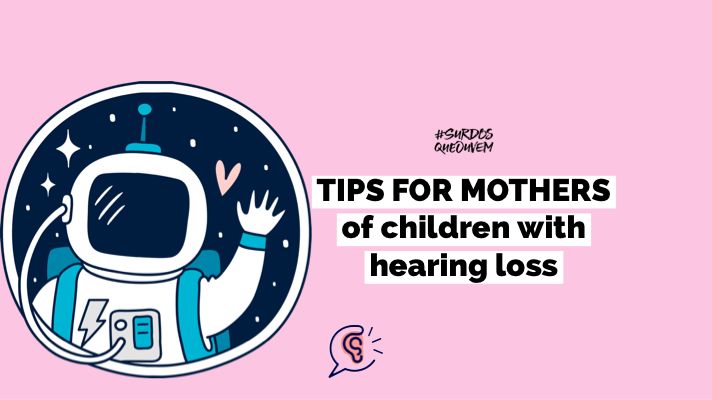
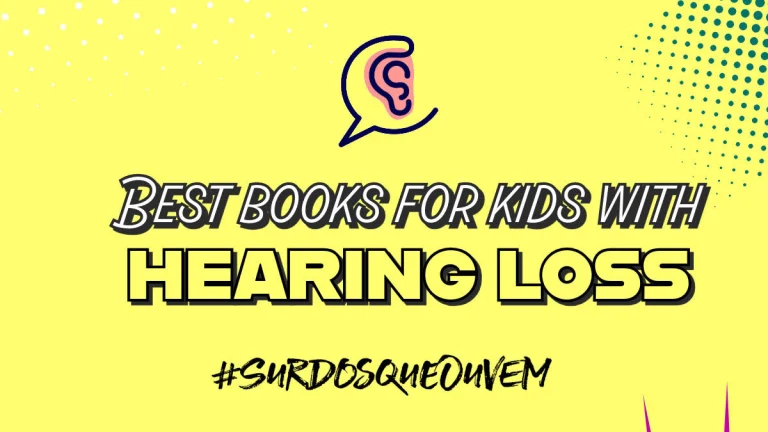


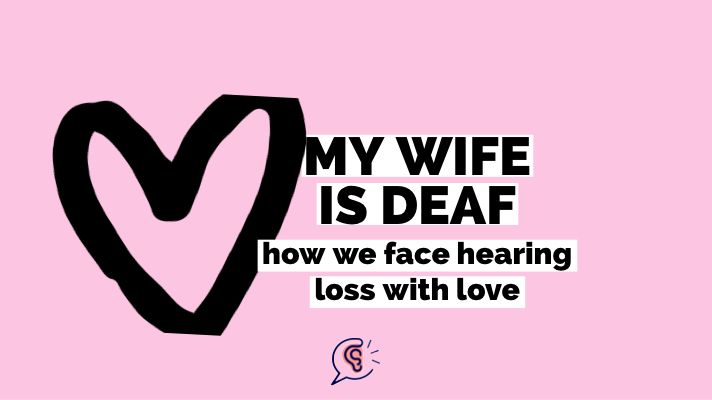
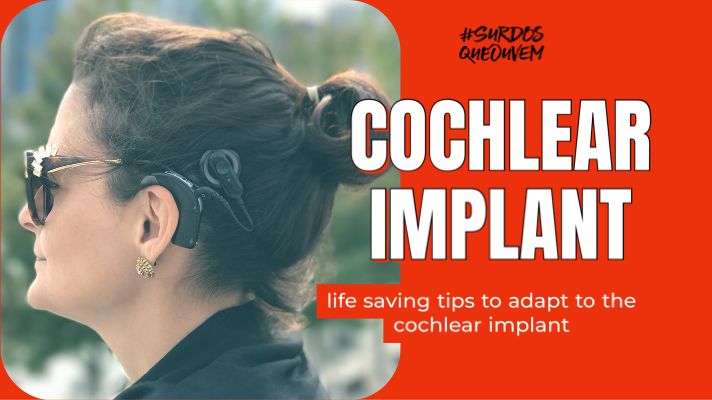
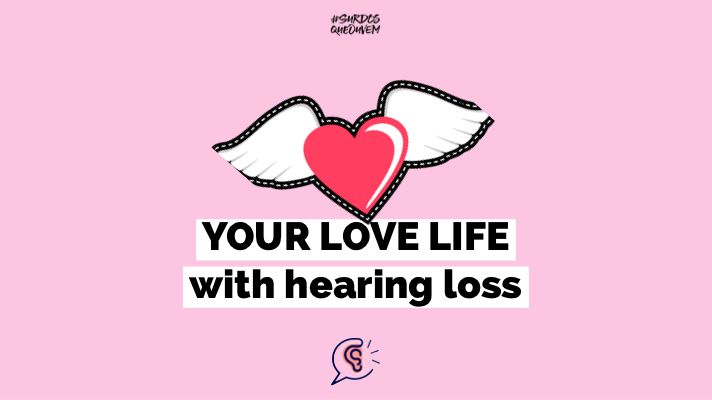

thank you for this insight from your perspective. as a mother of two deaf kids who grow now into puberty, this is very helpful.
I sometimes write about my challenges on my personal blog – from the mother’s perspective…
greetings to you xxx
Welcome, dear.
I just started a new website in english: http://www.hearinglossnews.com
And the books may help you navigate your daughters journey with hearing loss (I started losing my hearing when I was a kid and in my teen years I decided to enter the hearing loss closet): https://amzn.to/2T6xfXA
Best regards